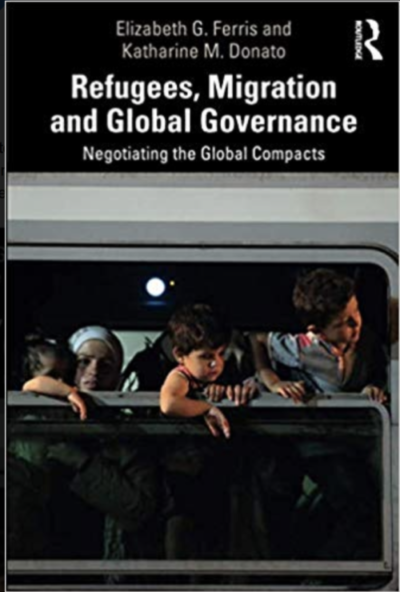Refugees, Migration and Global Governance
As debates about migrants and refugees reverberate around the world, Professors Elizabeth Ferris and Katharine Donato’s latest book – Refugees, Migration and Global Governance: Negotiating the Global Compacts – analyzes the way the international community addresses the movement of people. Whereas the refugee regime is grounded in international law with clear definitions and a single UN agency, the international migration regime has been a very different animal with much weaker legal standards and institutional responsibilities. This began to change in September 2016 when the 193 members of the United Nations unanimously adopted the New York Declaration on Refugees and Migrants, laying the groundwork for the creation of two new global compacts. This book traces the development of these compacts and considers the larger political questions of what this means for the future of international cooperation. The new compacts, the authors conclude, offer grounds for modest optimism about the future of multilateralism – particularly given the signs that our liberal world order, created in the aftermath of World War II, seems to be eroding.
Reports & Publications
- Book: Refugees, Migration, and Global Governance
- Book Launch: September 11, 2019, at 4 pm
Other Research:
- In 2020, a special issue appeared in International Migration, the flagship publication of the International Organization for Migration, in December 2019, edited by Professors Susan Martin and Elizabeth Ferris.
- Two weaknesses in the present international refugee regime are that it lacks mechanisms for effective responsibility-sharing for refugees and for institutional responsibility for internally displaced persons. In 2018, with support from The Exodus Institute, ISIM organized two symposia on these issues to contribute to on-going policy discussions about the Global Compact for Refugees.
- Prof Martin wrote about refugee responsibility-sharing and included policy recommendations
- Prof Ferris lays out an agenda for academic research related to the Global Compact on Migration in a paper published by the International Organization for Migration
- Profs Martin and Ferris examine the changing engagement of the United States in both refugee resettlement and asylum policy in this article.
- In 2016, ISIM and UNHCR seconded Prof Ferris to work in the office of the UN Secretary-General to support preparations of the UN Summit on Refugees and Migrants. Prof Ferris reflects on her experience as a Georgetown professor working on a highly political issue at the United Nations.
- One challenge to global governance and international refugee law is how to respond to those who move because of disasters and the longer-term effects of climate change. Prof Ferris and Georgetown alum, Jonas Bergmann, argue that evolution in soft law is a more appropriate response than developing a new convention or treaty on climate change.
